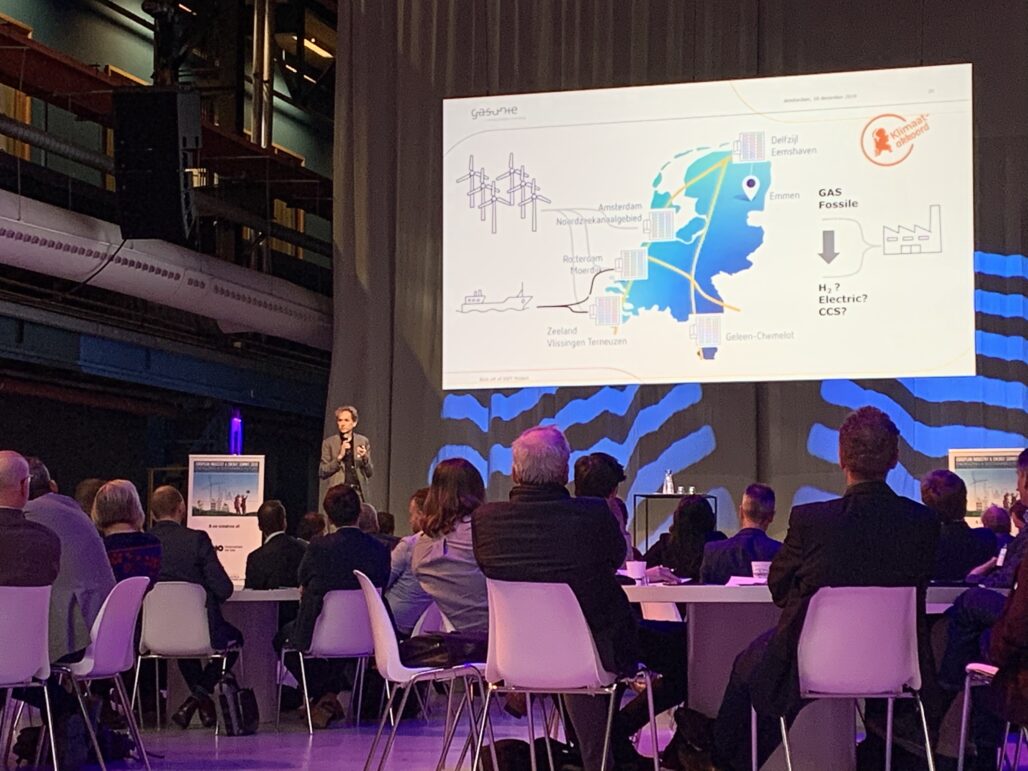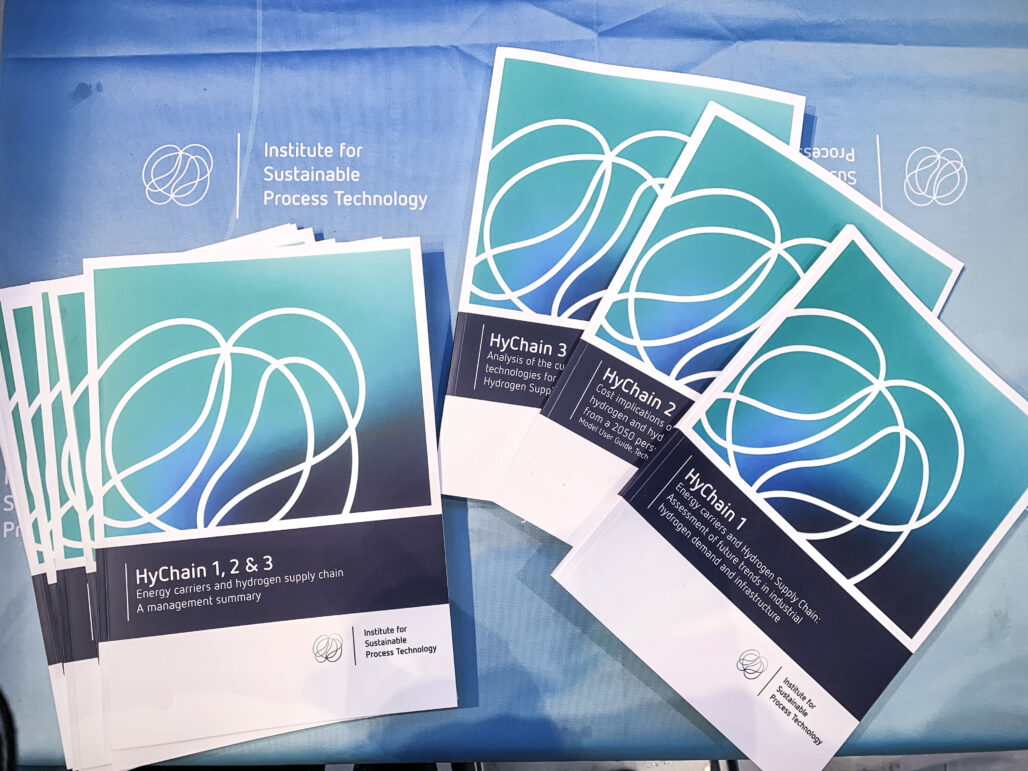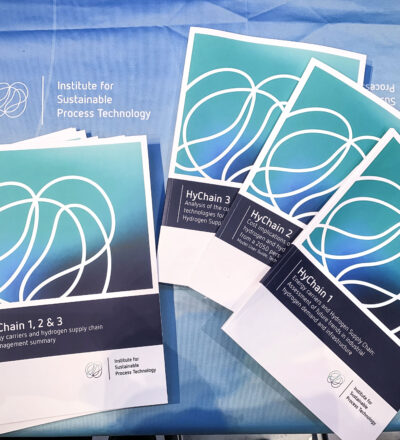Hydrogen plays an important role in the future renewable energy systems. In a large scale sustainable energy system green hydrogen, produced by electrolysis of water, is a crucial element. To increase the understanding of the role of hydrogen in the industrial energy transition, the Institute for Sustainable Process Technology (ISPT) established the Hydrohub Innovation Program.
The HyChain project, part of this program, is focused on a strategic understanding of the drivers behind global emergence of future renewable hydrogen value chains. Andreas ten Cate, program director System Integration at Institute of Sustainable Process Technology, introduced the first findings of the HyChain project at the European Energy & Industry Summit in Amsterdam.

The HyChain project looks at the development of future renewable hydrogen value chains with the Netherlands as a focal point. Industry, consultants and knowledge institutes work together to clarify what is needed to build energy chains based on large-scale affordable production of green hydrogen. The program consists of five parts, of which the first three were finished in 2019.
Investigating hydrogen production, storage, transport and future use in industry
The HyChain 1 project focused on how energy and feedstock demand in the process industries may change when aiming to become carbon neutral. The main focus of HyChain 1 is to explore the major tipping points that influence the shift from incremental change towards rapid growth in a hydrogen economy, across various sectors.
The HyChain 2 project focuses on the cost implications of importing renewable electricity, hydrogen and hydrogen carriers into the Netherlands. Within the project a high-level model is developed to evaluate these import costs and their dependencies on the various input parameters.
For HyChain 3, in a collaborative effort between industry parties and research institutions, key information was collected into 59 fact sheets on technologies for production, conversion, storage, transportation, and reconversion of hydrogen. In addition to quantitative information, the project also explored qualitative risks or opportunities that are known to be associated with specific technologies.

Partners in HyChain
Partners in HyChain are Nouryon, OCI Nitrogen, Yara, Dow, Vopak, Gasunie, Stedin, Frames, Proton Ventures, Havenbedrijf Rotterdam. The research in the first parts of the project has been carried out by RHDHV, Kalavasta, Quintel, Metabolic, ECN/TNO and TU Delft.
Acknowledgement
HyChain 1, 2 and 3 are co-funded with subsidy from the Topsector Energy by the Ministry of Economic Affairs and Climate Policy. HyChain 4 is co-funded by TKI I&E with the supplementary grant PPS. HyChain 5 is co-funded with a grant from NWO under the ESI-Far System Integration call.
